Disciple: Still Reimagining
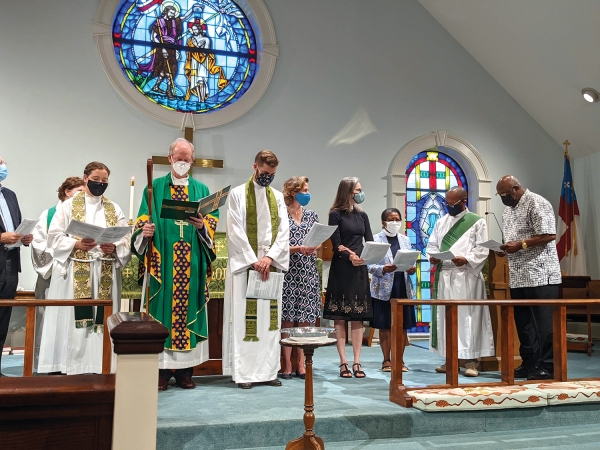
The pilot round of Reimagining Curacies enters its final year
By the Rev. Nathan Kirkpatrick
It was a meeting 11 months in the making. Three curates, three rectors, two bishops, two canons, one project director—all part of the Reimagining Curacies initiative—all talking together about life and ministry.
It should have happened much sooner, but COVID-19 scuttled those plans. There had been no welcome dinner for the curates, no diocesan celebration for the beginning of an initiative, not even a coffee hour or reception with informal conversation.
Finally, though, on a warm afternoon in May 2021, by the pond at the Church of the Advocate, Chapel Hill, the group was able to gather face-to-face for conversation.
[Image: The Reimagining Curacies transition celebration took place at St. John’s, Wake Forest, on June 8, 2021, during a time when everyone hoped life would return fully to its pre-pandemic normal. Photo by the Rev. Mary Cat Young]
Zoom boxes became real people. The Rev. Amanda Bourne, the Rev. Mawethu Ncaca and the Rev. Philip Zoutendam, who had each been interviewed and called on Zoom to serve as the first Reimagining Curacies curates, were together with the rectors of the first mentoring congregations: the Rev. Elizabeth Marie Melchionna, Chapel of the Cross, Chapel Hill; the Rev. Sarah Phelps, St. John’s, Wake Forest; and the Rev. Stephanie Yancy, St. Titus’, Durham.
For the first time in 11 months of ministry together, the six of them were able to reflect in-person on their work together. Across two days, there was story after story, each bearing witness to the challenge and complexity of ministry in this season—stories of parking lot Eucharists, socially distanced Holy Weeks, learning a new congregation over Zoom, and ordinations into ministries that looked radically different than the ministry any of us had imagined.
In those two days, all of us were given a glimpse of what had been imagined in the original diocesan grant proposal to the Lilly Endowment as part of their Thriving in Ministry program. Our initiative was about the kind of formation that can occur when there is a real sense that we are in ministry together. It was based on a conviction that the priests the church will need in the future need colleagues and companions today, as well as a church culture that encourages collaboration and provides support.
By the Advocate pond, we began to see how that might happen—how we might nurture each other’s gifts, talents and capacities; how we might spark one another’s imaginations with a holy vision of what’s possible now. We learned how each of us engages change and how we respond to conflict—and what that might mean for our ministries together.
In some ways, this gathering was not 11 months in the making; it was a meeting that had been envisioned three years before when the grant application was written. It was a moment, though, that the pandemic had precluded to that point.
A few weeks later, we gathered again, this time at St. John’s, to mark the end of the curates’ year in their first placements and to bless them into their second placements. After a year at Chapel of the Cross, Bourne would head to St. John’s. After time at St. John’s, Ncaca would head to St. Titus’, and Zoutendam would say goodbye to St. Titus’ and begin service at Chapel of the Cross. Representatives of each congregation offered gifts to their departing curates and prayers for their incoming clerics. The Rt. Rev. Sam Rodman reminded us from the pulpit that this is the shape and nature of ministry—to be sent where God calls us and to do the work as faithfully as we can while we are there, trusting that the Spirit never leaves us or abandons us in the midst of transition and change.
With vaccines widely available and case counts falling throughout the Diocese, there was plenty of reason to hope that night that the curates’ second year would be a more typical experience of parish ministry than their first year and that the in-person camaraderie found on retreat together would continue.
Yet, quickly, their second year was disrupted by a surging Delta variant and the return of necessary precautions. At the same time, one of the curates was seriously injured at home and spent a significant portion of the fall on medical leave. Another curate discerned vocation elsewhere and left the program late in 2021. One of the mentoring clerics announced her retirement for early 2022.
While these kinds of life and vocational changes were anticipated and vocational discernment was always seen to be a critical component of any initiative like this, Reimagining Curacies will need to be reimagined in light of these changes and what can be learned from them.
In this, some of us wonder if Reimagining Curacies now finds itself needing to embody, if it doesn’t already, a vital feature of the church in this time and into the future. Throughout the pandemic, we have navigated disruption on a scale that we never imagined, and every congregation has adapted quickly to those changing circumstances. Yet now, there are many of us who really want a return to a more settled and predictable way of being.
But what if the church in the future will require of us an agility and nimbleness, a responsive dynamism that can see and sense in disruptions the call of God and an invitation to trust the Spirit’s presence and power? What if a constant part of our future will be to reimagine even those things we have thought we reimagined or have definitively reimagined? After all, there are few indications that stability and predictability lie over the next horizon.
This will most likely shape the content for the initiative in the remaining time we have with our first curates and with our first placements, as well as how we discern the shape of the program in the years to come. We will ask together how we can best support clerics and congregations across extended periods of disorientation and reorientation. We will explore how we might nurture collaborative cross-congregational ministries that engage our neighbors and communities in new ways. We are eager to broaden the conversation across the Diocese, learning together how we can embrace a future that is both unpredictable and charged with the presence of God.
The Rev. Stephanie Yancy
Former rector, St. Titus’, Durham
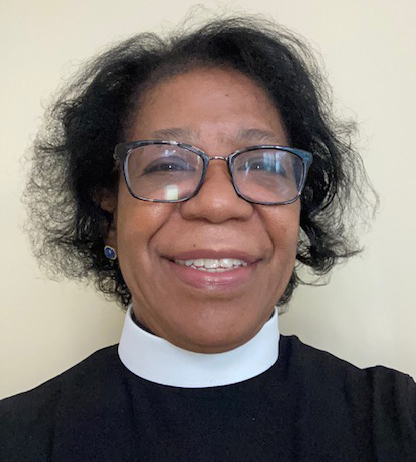
The [Reimagining Curacies] program has been an enormous benefit to St. Titus’ and to me personally. It’s been delightful to have a full-time clergy colleague to share in the decision making and in the enhanced pastoral care called for by the pandemic. I appreciate the different perspectives each curate brings, their entirely different skill sets, their unique preaching voices and the way they appropriately challenge my sense of the priorities of ministry in this place. If I had to single out the most valuable thing that I’ve learned from the program it would be that humor and flexibility are invaluable in doing ministry. That’s true all the time, but especially during a pandemic. The other thing I’ve learned is that it’s important to set goals and to check in from time to time to assess progress. It would have been easy, during the early days of the pandemic, to spend all my time making sure we had some sort of online service to offer each Sunday. Being responsible for the experience of each curate helped me to use my time wisely and accomplish more than I would have without that responsibility. Lastly, working and praying my way through COVID with a curate companion reminded me that we are made to live and work in community. We don’t have to do this work alone. I count it a blessing of the Reimagining Curacies program that my community included the Rev. Philip Zoutendam and the Rev. Mawethu Ncaca.
The Rev. Elizabeth Marie Melchionna
Rector, Chapel of the Cross, Chapel Hill
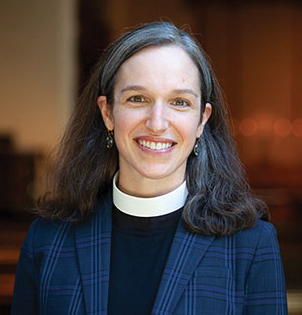
The last 20 months of the Reimagining Curacies program have shown the power of shared, mutual learning— that we are always in a process of growing and changing as leaders and as disciples of Jesus. What a challenging and curious and important time to enter the landscape of parish ministry and to hone new skills of remembering the body of Christ as community shifts, changes, grows and deepens.
The Rev. Sarah Phelps
Rector, St. John’s, Wake Forest
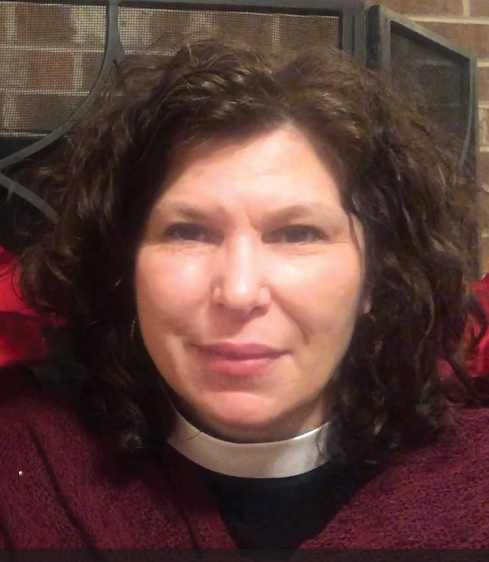
The Reimagining Curacies program was envisioned and developed before the start of the pandemic. With Bishop Rodman, we considered delaying the start of the program until things returned to “normal” but ultimately decided to dive in and get started. Why? Because it is our role as clergy to guide the Church in pursuit of its mission whether in times of relative ease or times of duress, and because it isn’t our ministry after all, but Christ’s. We are called to serve him and the neighbors we have through him whether we are personally at our best or communally at our worst. So the program thus far has been implemented entirely within the pandemic landscape.
Obviously, this has not been the easiest time to begin one’s vocation in parish ministry, with supervising clergy and other parish leaders under pressure simultaneously to keep parishioners safe and to strive to keep a community unified and connected. The rectors who would be their supervisors and mentors have been under unprecedented stress themselves: having to learn new technologies and pivot to new practices for care and community-building overnight, having to balance care for their own vulnerable family members, aging parents and/or young children with responsibilities at church. The usual peer supports were strained without the ability to meet in-person, and the usual context for preaching, teaching, pastoral caregiving and building relationships had all but vanished.
Amidst a challenging season and a rough start in their priestly vocations, our curates have demonstrated tremendous grit, dedication, flexibility, creativity, and love for Christ, for the Church and for its people. It has not been easy for them. I am certain there have been disappointments and frustrations with a program that’s taken unexpected detours. But they have acted like people of hope amidst a death-dealing global pandemic and intense social and political turmoil. I truly hope these are not the best years they’ll ever have in ministry, but they seem to understand that they need not be the worst. It has been a privilege and honor to wrestle alongside them with all that is asked of us in these extraordinary times. They are a gift to the Church, and I look forward to watching them grow more fully into their gifts and this calling in the year ahead—whatever it may bring.
The Rev. Mawethu Ncaca
Curate
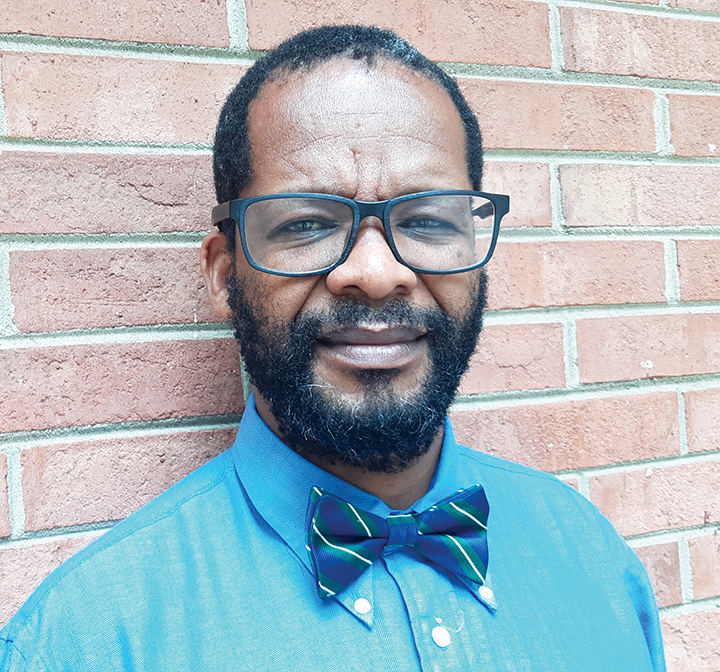
The discernment process required for someone to become an ordained priest in the Anglican Communion could be seen as “jumping through hoops” or ticking the boxes. What I have learned in this journey can be captured in what the Rule of St. Benedict says about obedience. Etymologically, the word obedience in Latin (oboedientia) and Greek (ὑπακοή) implies not only that there is a “listening to” or “hearing a voice” or “submission to what is heard” but also that there is an implied authority. Thus, there is no obedience without authority. These two work hand in hand. In my spiritual journey, it took awhile for me to realize this tandem nature of obedience and authority.
As someone who was discerning the call to the priesthood, I needed to be discerning with others for my call…there is a sense of mutual obedience about what God’s call is for me.
Obedience is being aligned to the Lord as seen in John 6:38, “For I have come not to do my will but the will of him who sent me.” Obedience is a spiritual virtue that needs to be cultivated, and its fruit is faithfulness. People who walk and know your journey of faith will notice that you are faithful in small things.
The Rev. Philip Zoutendam
Curate
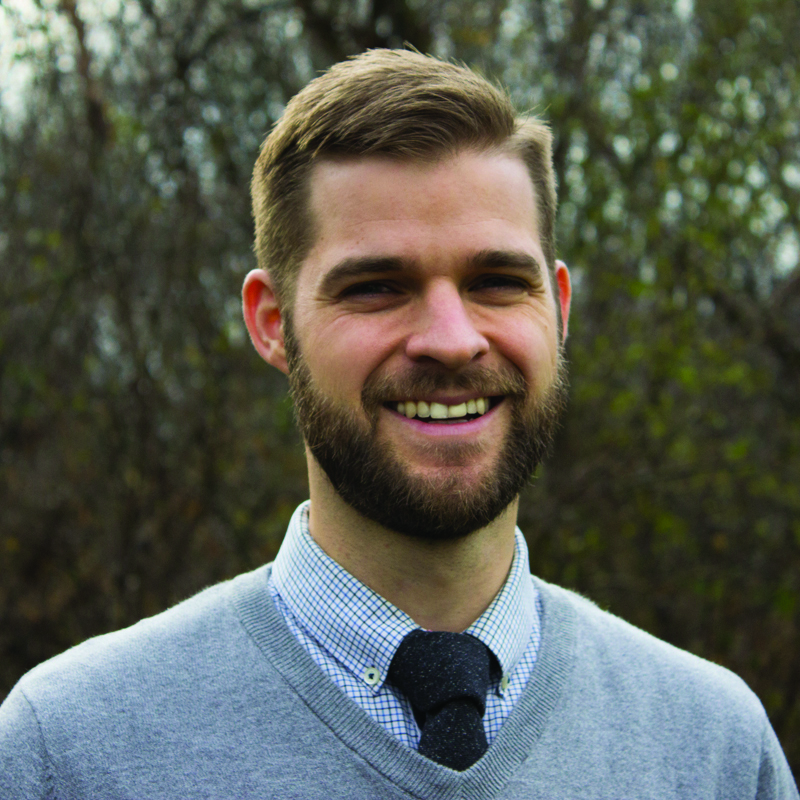
Most curacies, of any design, are intended to help new priests get a number of “firsts” under their belt. And as I write this—on the one-year anniversary of my ordination to the priesthood, as it turns out—I can certainly look back on the first year of my priestly ministry and note quite a few memorable firsts.
There was the first time I celebrated the Eucharist—and then, several months later, the first time I celebrated the Eucharist indoors.
There was the first time I baptized a child—and then, once again several months later, the first time I baptized a child in English.
Obviously, because of COVID and various other accidents and exigencies, many of my firsts have been delayed or otherwise transformed—but also, because of the unique nature of this particular curacy, many of the seconds, thirds and so on, which are starting to come around in year two, look far different from the first time I was responsible for that particular priestly act, at the very least because they occur in a completely different community. In fact, because I have already moved to a new cure once (and will move again in just a few months), I have already experienced some lasts: my last Sunday in a church, my last sermon, my last Eucharist.
I know it will take many more firsts, lasts and everything in between before most things about priestly ministry seem familiar. And so, in the meantime, I’ve found something of an anchor in the words in our baptismal liturgy that stood out to me as preparing for my second “first baptism:” we do all this work “in joyful obedience” to Jesus Christ. Joy, especially in faithfulness to Christ’s command, fills in a number of the gaps left by inexperience and uncertainty.
Tags: North Carolina Disciple / Formation
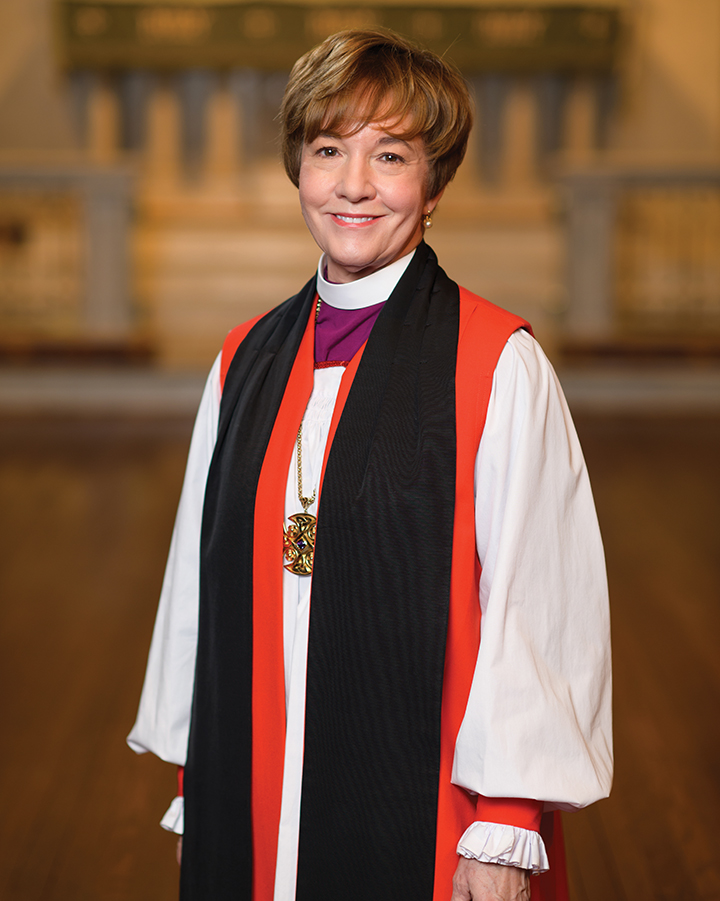 Assistant Bishop
Assistant Bishop
 Missioner for Adult and Life-long Formation
Missioner for Adult and Life-long Formation
 Lead Youth Missioner
Lead Youth Missioner
 Assistant Youth Missioner
Assistant Youth Missioner
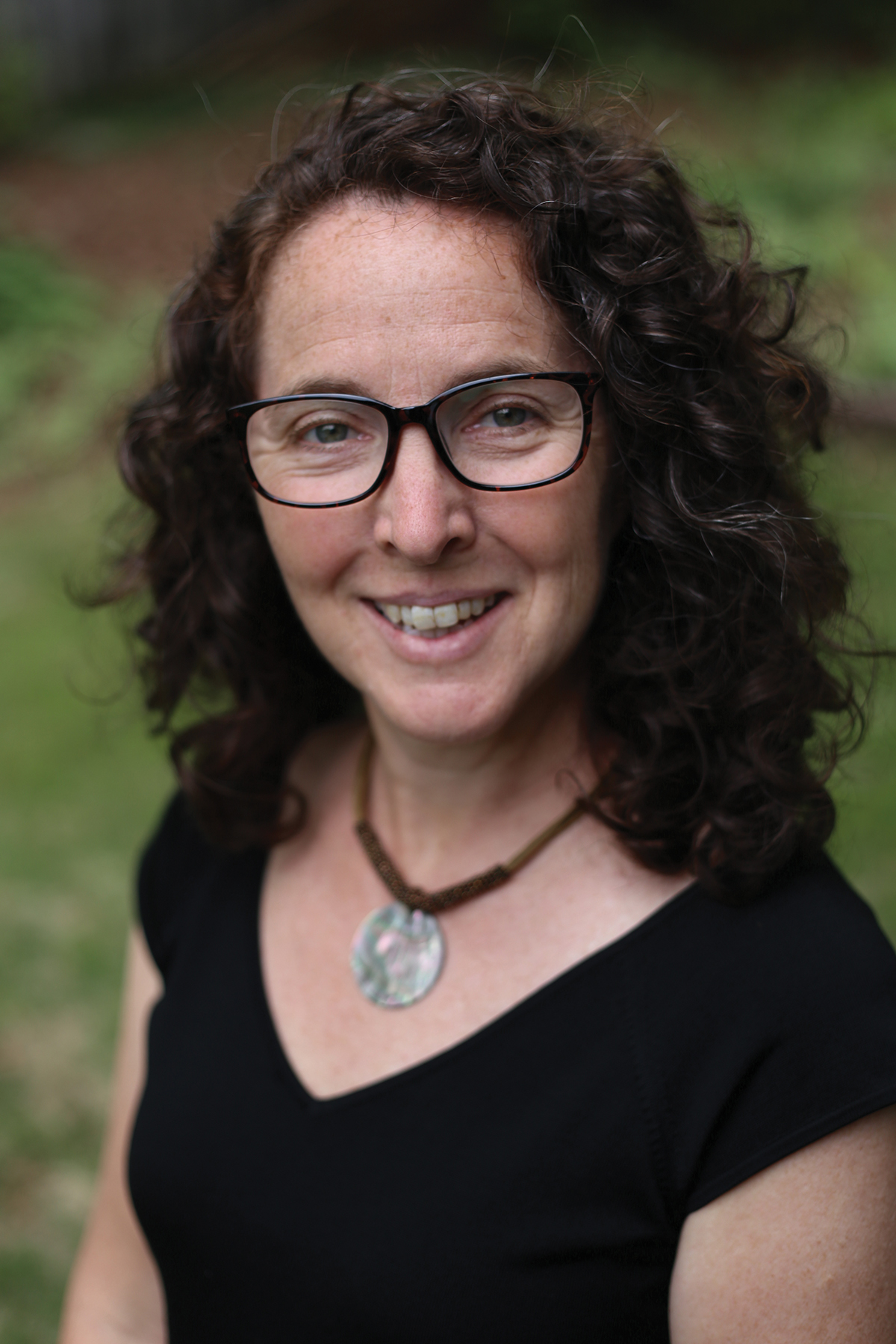 Mission Strategy Coordinator
Mission Strategy Coordinator
